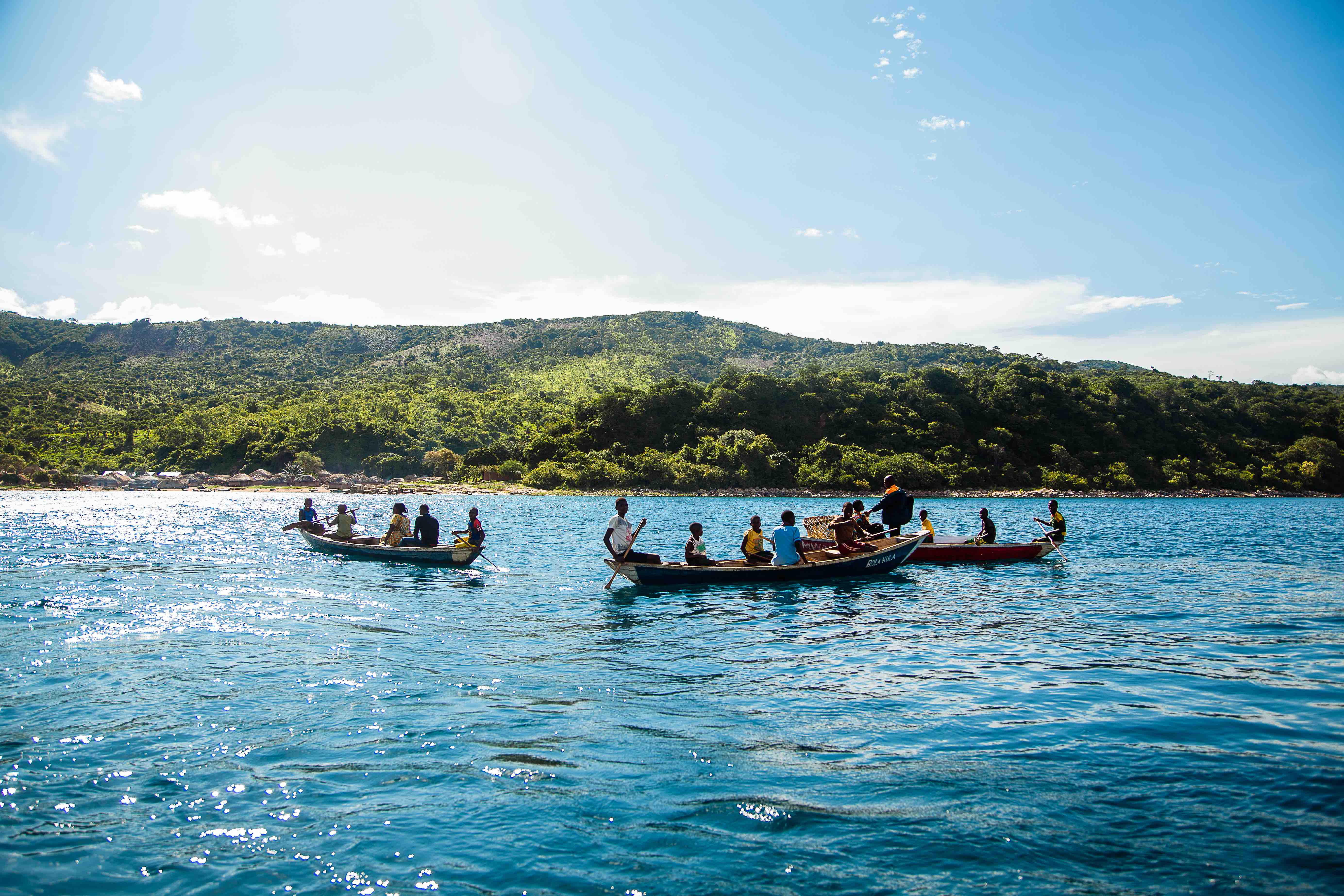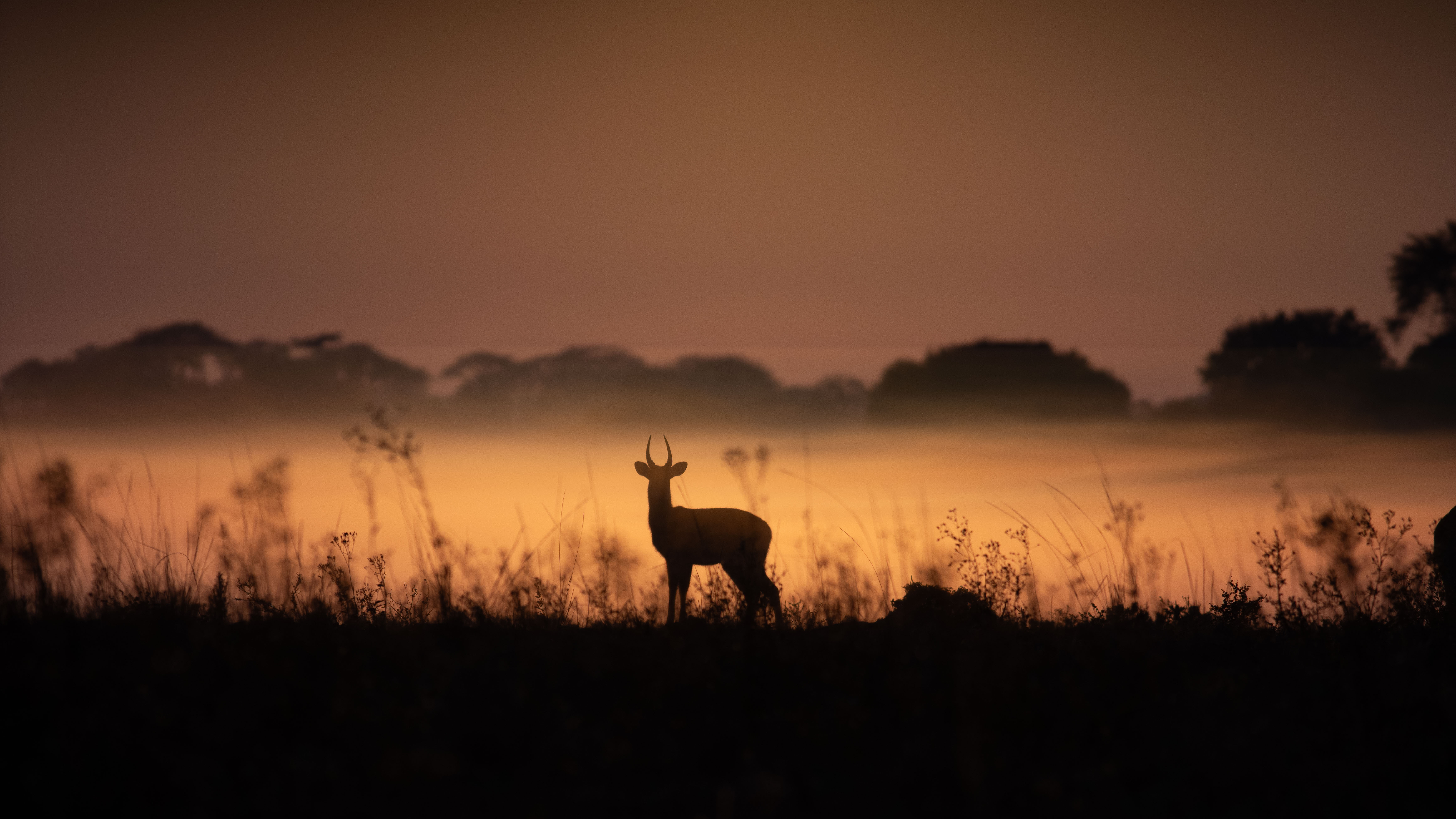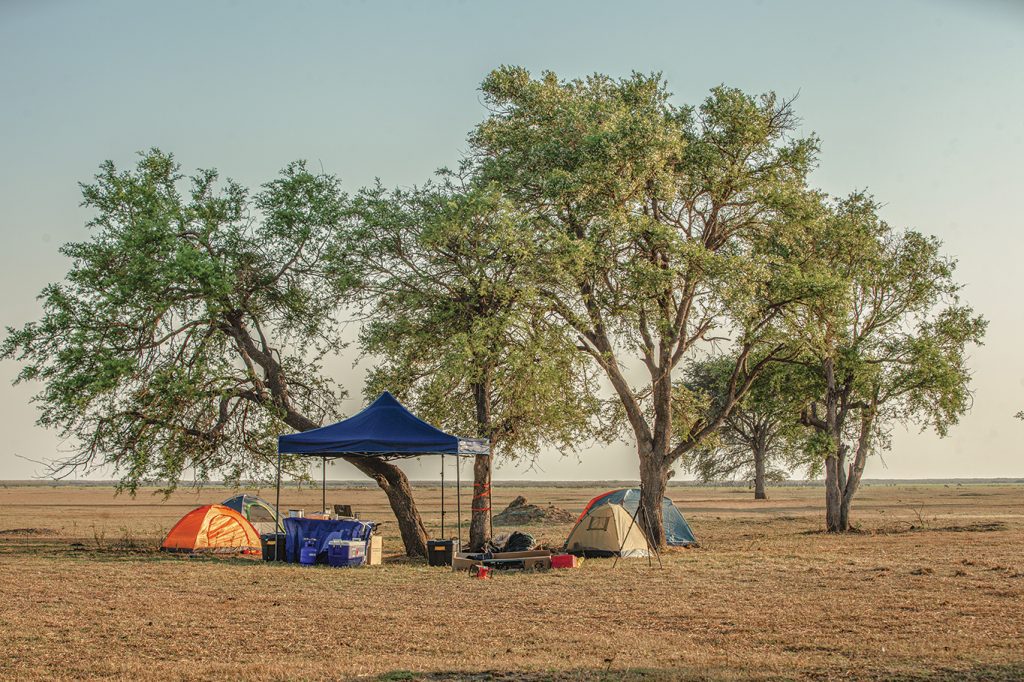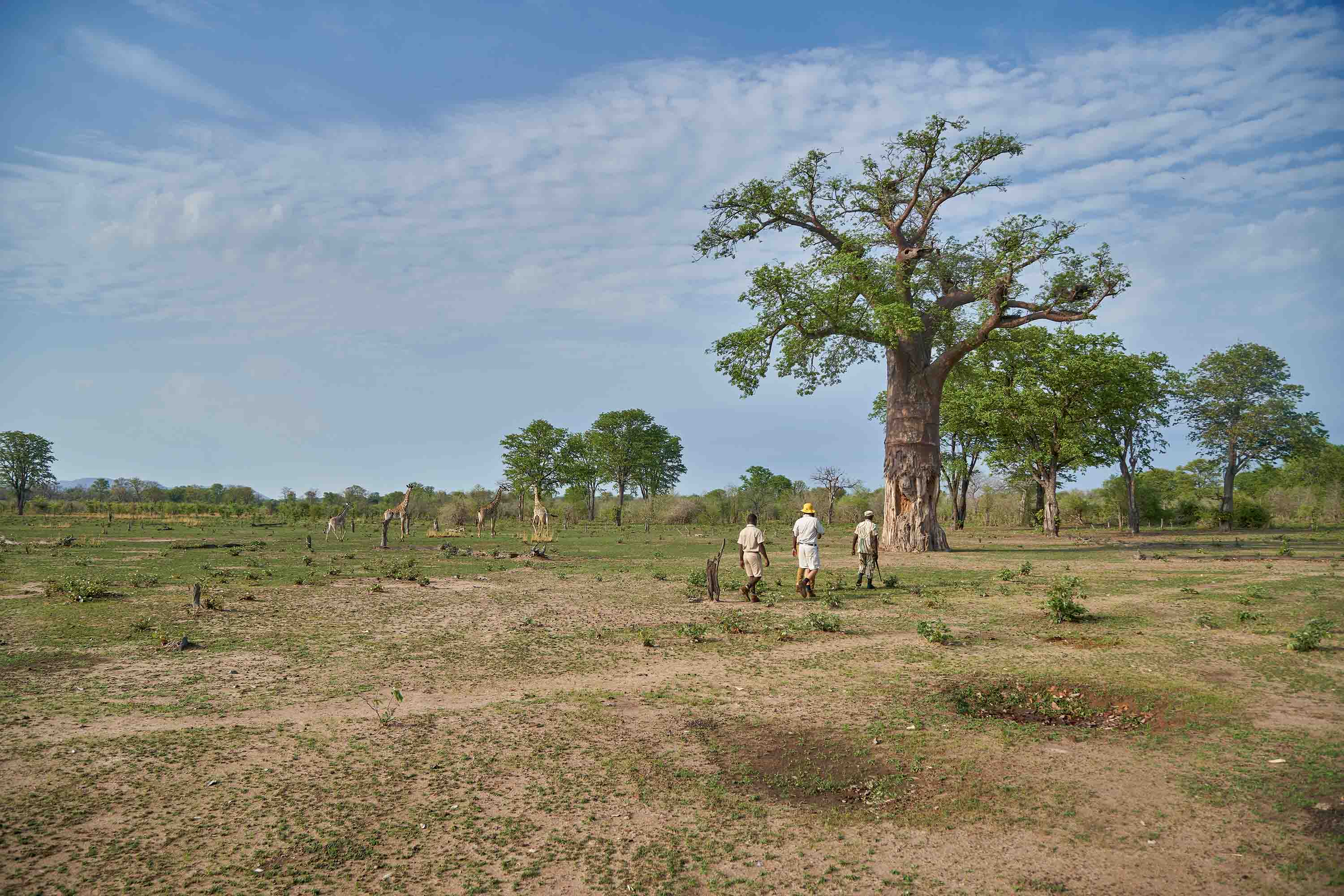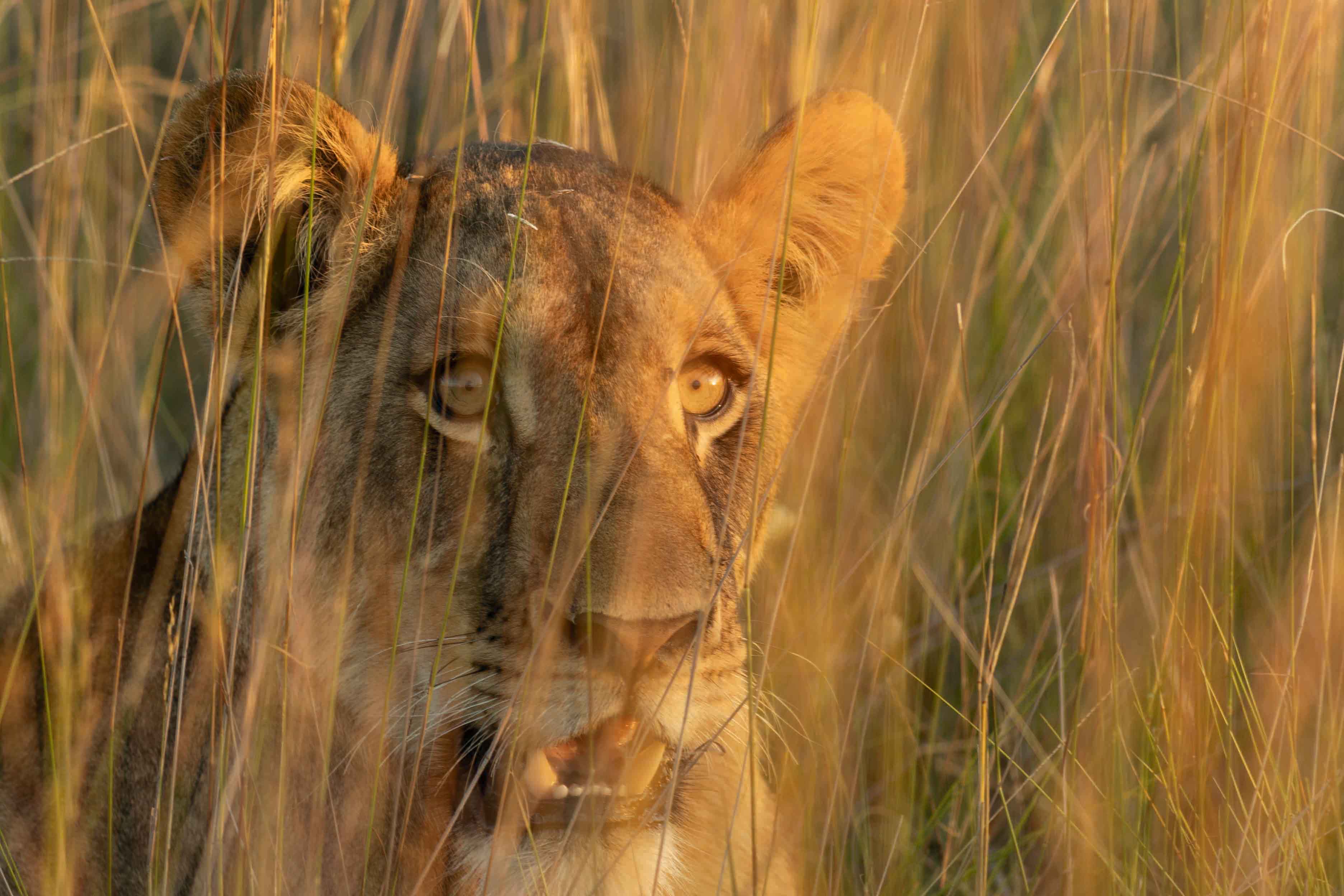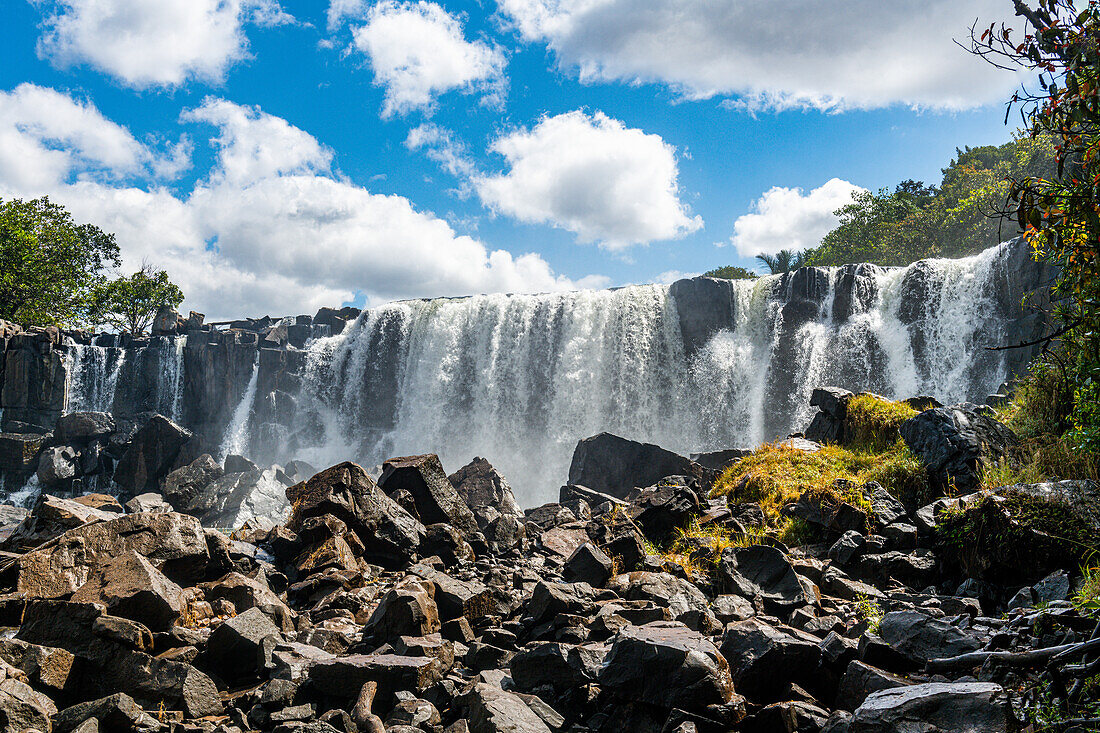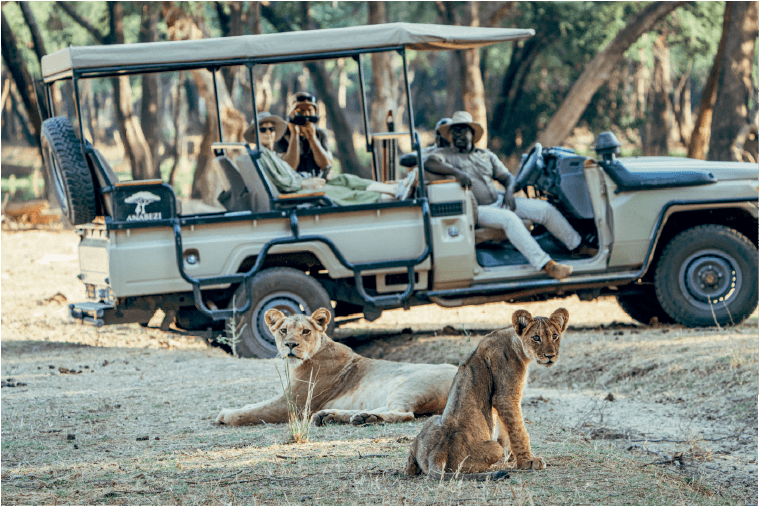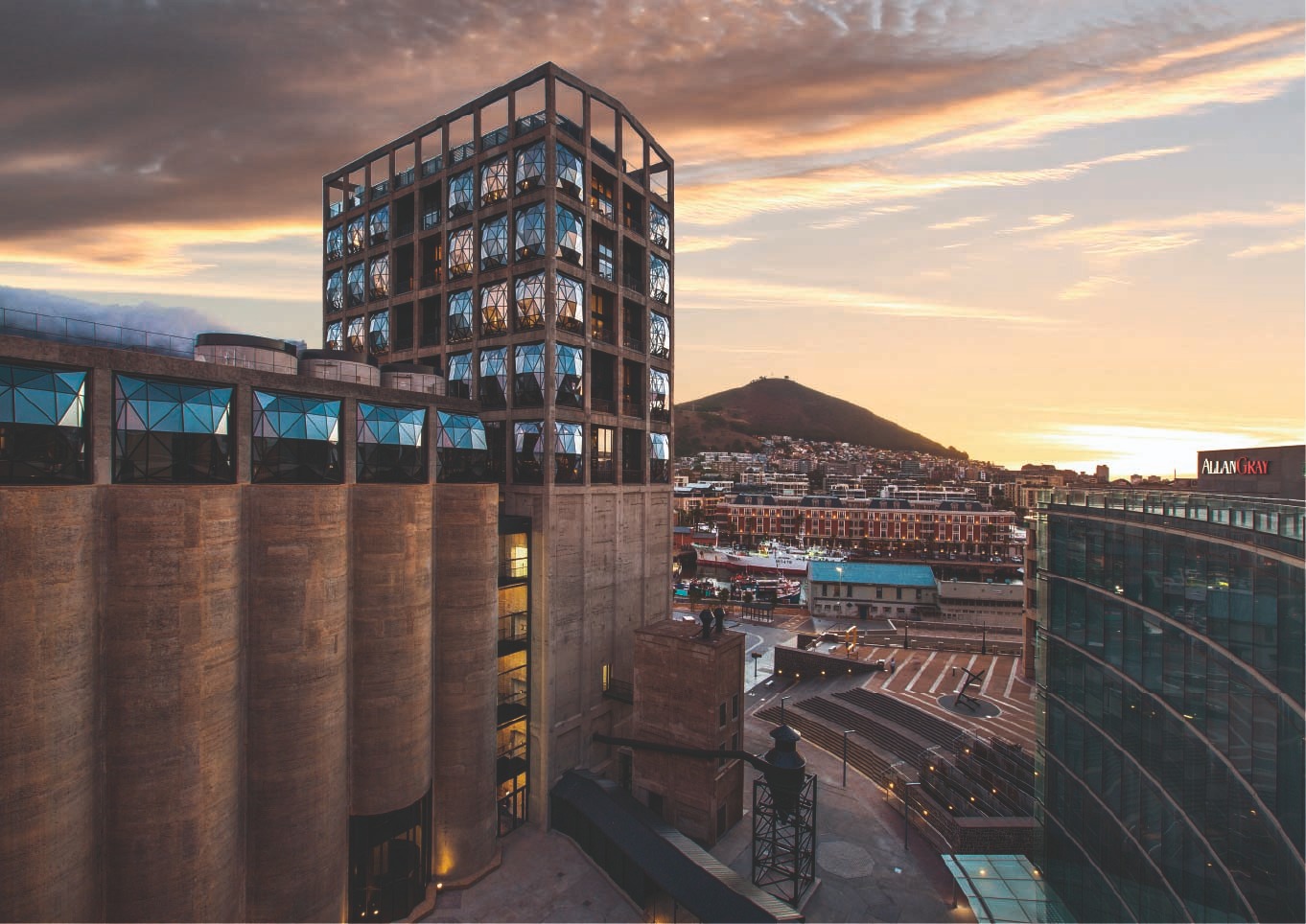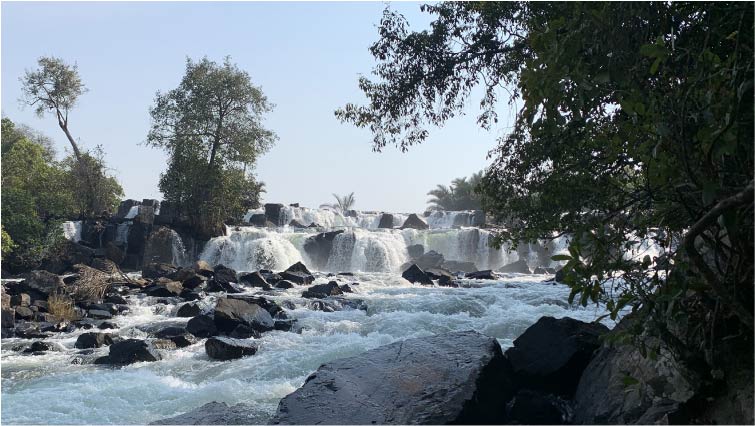From freewheeling down a treacherous hill in a rugged Land Rover, to fearing for my life in a leaky canoe, my excursions with this publication have taken me to many places. I’ve answered the beckoning pleas of adventure and heeded the desperate calls of exploration, but this particular voyage to Lake Tanganyika was a slightly different chapter. Teeming with beautiful landscapes, history and culture, I’ll attempt to cram its noteworthy experiences, sights and even smells in between these pages.
A BOAT. A DEITY. TWO MOJITOS.
It was Friday morning. Ace photographer, Lizu Chinyama and I had flown to Kasama on assignment the previous afternoon and were en route to Mpulungu to catch a boat. Our driver took a detour from the main road, the small talk in the car ceasing almost an hour before and the sound of the tyres crunching the gravel filled the air.
I dozed off, rousing only briefly to see Zambia’s beautiful greenery blurring past the car window. When I opened my eyes again, we were in a dusty corner of the country that has Two Missed Calls General Dealers and God Strike My Enemies Bar as popular establishments. Music from Macky 2 blared through nearby speakers and had me wide awake when we got to the gate of Samaras Fisheries. This was where we would board the boat to our accommodation. I looked forward to seeing what the mighty Lake Tanganyika had to offer.
The smell of fish invaded my nostrils. Young fishermen and boat boys were bathing out in the open by some running water from a large broken pipe, their skin glistening in the light of the Sun. Gerard, our speedboat driver and emissary from Ndole Bay hoisted up his anchor and took us out on the water sometime after 1:00 PM. Behind us, the hot sun reflected off tin roofs below the green hills around the lake.
Craig with baby crocodiles
I wanted the excitement to begin immediately, adventure whispered flirtatious sweet nothings into my ear. I was afraid the three-hour boat ride would be dull with nothing but a large mass of water to stare blankly at. But Mother Zambia showed a wonderful side that I’d never seen before. The speedboat skirted over choppy waters, moving past small uninhabited islands and ferry boats carrying traders and curious minds. We’d pause occasionally for Lizu to take the quintessential travel photographs: some children playing in a wooden boat by the foreshores of Tongwa Village, ferry passengers waving hello to us…
The late afternoon wind had the water current thrashing the underside of the boat, a violent rhythm knocking against its belly. But was it the wind? Could it have been something else? Gerard slowed the boat down as we approached Kapembwa Village, and the ghostly, Kapembwa escarpments. Lungu legend has it that a deity—the spirit of the lake— Kapembwa, resides at the highest point of the hilly settlement. Long ago, people would drop offerings into this part of the Tanganyika to allow safe passage. Anything from money to alcohol would be given to appease the spirit that guarded the waters. I begrudgingly poured a beer from our cooler box to keep with tradition, and because I secretly feared the possibility of our boat capsizing by wrath of a demigod.
Before we got far, Gerard had to bring the twin engines of the Frontosa to a bubbling halt again. Lizu and I didn’t say a thing; we were evidently spellbound. The water was a crystal clear blue that faded to match the colour of the jagged cheek of Mother Nature’s rock-face. White sand reefs meters below the blue water had jutted out of the earth spreading outwards and sideways, sprouting emerald green leafed trees on their tops during the wet season. The Tanganyika is said to be one of the clearest freshwater lakes in the world. We were all in awe of what we saw for a silent moment.
A few fishing boats, canoes and a crammed ferry later we reached Ndole Bay. We received a warm welcome and were informed that Craig Zytkow, owner of Ndole (and our invaluable contact) would be meeting us at supper. Lizu and I were encouraged to relax. Two complimentary mojitos were brought to our rooms to help us to the task. I slurped them both, as my photographer friend is not a drinker. It was going to be a good stay.
A BAY. A TOOTHLESS SMILE. A GHOST LODGE.
Ndole Bay is a slice of paradise nestling on the banks of the Tanganyika. Its private beach boasts two decks, one of which is a leisurer’s dream with hammocks and sunbeds to cradle you under its grassy shade. The dining area has a rich wooden theme with African décor and of course great food. It rained on our first morning at Ndole. Raindrops hit thatched roofs and sounded like the soothing white noise of an analogue TV. They slid off green leaves, creating a scenic backdrop of the hills surrounding the lodge. Somewhere in the distance a hippo grunted good morning. I crawled out of bed, the meticulous towel elephant from Ndole’s room service watching intently. Lizu had been up before me, canvasing the picturesque white sand beach with his lens before breakfast. It was time for our morning activity.
***
Craig applied a little sunscreen on his nose as he told us little fun facts about our location. “You can get water taxis for K10 around here,” he said over the buzz of the speedboat. We were headed to Nsumbu township, a little fishing village not far from Ndole. I was eager to see what was in store. Perhaps we would get into an unevenly matched brawl with some burly fishermen, or save a prized duck from the jaws of a crocodile. Who knew? Adventure did not send you an IM to ask if you wanted to hang, it just showed up at your doorstep.
Kids of Nsumbu Village
We docked the boat and proceeded into the busy village. Some old fishermen were fashioning paraffin lanterns from chicken wire and glass to attract fish at night. Wooden kiosks with various items on sale stood crookedly on the sandy beach. It was a thriving community. Congolese rap music boomed from a speaker somewhere as little children and chickens ran through narrow clay brick alleys. Salaula is a big commodity here. Boys and girls were clad in faded American pop cultural T-shirts. A snot-nosed kid in a Scooby Doo T-shirt posed for photos with his eager friends. A lady with her chin in her palm, elbow on her knee and her head in the clouds looked on, waiting for someone to buy the most gargantuan fritters I’d ever seen.
“Fishermen come back from their trips, sell their catch and drink a hefty amount of their money away,” Craig said. “There’s a lot of partying and debauchery.” The fishermen of Nsumbu mostly catch and sell Kapenta. As we walked through the village and climbed a little higher, the fish on display seemed to get bigger. We could see nets cast out on the sand for their catch to dry. People with more money build concrete slabs to avoid getting grit from the sand into their fish.
We later came to what seemed like the Township Square or main market. Here bright yellow and red mangoes littered the place, with chitenge outfits hung above them for sale to the more fashion conscious members of the community. Nsumbu’s jugular pulsated as two women flung threats at each other and a drunk stumbled past Craig, mumbling inaudibles at him for no good reason. People were loud, speaking dialects from DRC and Bemba traders calling out to customers. I stood on the side-lines, taking notes. When I looked up, I realised I had an audience. The boy in the Scooby Doo T-shirt and his posse had surrounded me, probably wondering what I was doing. I moved along like I had somewhere terribly important to be.
Before we left Nsumbu I had a brief chat with a Bemba carpenter whose name I couldn’t spell. He was working on a large boat while his compatriots drank and shared some banter. He said he’d been building boats since he was fifteen, a skill passed down from his father and his father before him. Many people bought their boats from him and others like him. They customised their vessels with paint jobs and slogans that gave a fleeting glimpse into their owners’ personality. I learned that this man’s craftsmanship was unparalleled. At least that’s what his drunk friend with a toothless grin said.
A lesson in scuba diving
***
We left the village to continue our tour, the waters a lot calmer than the previous day. I was still hoping for some kind of excitement while Lizu frantically took photos of our surroundings. We navigated a tiny section of the Kapalwe Channel, stopping occasionally to try and find a good fishing spot. Large boulders smoothed out by the water over years had formed eye-catching clusters and formations. The large Balancing Boulders found at Nuundo Head have quite a bit of history attached to them and are of great significance to the local Tabwa people. An annual ceremony in which a white chicken is sacrificed to honour the god Nundo happens here. “The waters are deathly quiet on the day the sub chief comes to the shrine,” Craig said. We moved along as my imagination ran wild.
Fishing is a great activity to calm one’s nerves and engage in some internal reflection. I was a little disappointed when I struggled to reel my line in and at the end of the hook, only a tiny tiger fish flapped its tail in an effort to escape. I was hoping for an ancient monstrosity I could tell the world about, its spiny teeth almost cutting the line and it’s belly weighing our boat down. Instead I wrestled with patience.
Cosam, our boat driver that day had better luck with the fish and caught our lunch. We docked on a beach, which was part of Nsumbu National Park. Lizu and I cooled off in the amazingly clear water while Cosam set us up for our meal. Here, Craig smoked the most delicious fish I’ve ever had in my life. “I just added some fish spice and a little lemon,” he said modestly. The Nkupi is endemic to the Tanganyika and people come all the way to this part of the world for one of the tastiest of 300 Cichlids species found in the lake.
We didn’t get a chance to venture far on land due to it being wet season, but we were told one could see elephants, zebra, sitatunga and even lions and leopards. Unfortunately the wildlife numbers have declined over the years. While Lizu and I cleaned our fish bones, Craig told us a little about his preservation efforts with Conservation Lake Tanganyika. Poaching is a major scourge of virtually every national park in the country. Whole ecosystems have been altered because of a few greedy men with rifles and a disregard for animal life.
So in early 2012, Conservation Lake Tanganyika was established as an accountable and transparent organisation to raise money and rally efforts towards minimising the decline in biodiversity in and around Lake Tanganyika, and Nsumbu National Park. The conservation effort focuses on supporting the department of National Parks and Wildlife through training, provision of supplies and equipment as well as technical support in all aspects of conservation and protected area management. Interestingly, one of their long term goals for the park is the re-introduction of Black Rhinos to the area. An effort successfully implemented by the Frankfurt Zoological Society in North Luangwa, where they have been operating for the past 30 years. Other plans include training locals to appreciate and protect animals, as well as respect fishing regulations. Unsurprisingly, training the denizens is a challenge. It is difficult to convince people that have been hunting on and cultivating ancestral land for eons to suddenly respect the beasts they may have an adversarial relationship with, let alone ask them to limit the amount of fish they can catch when it is their livelihood. Regardless, Conservation Lake Tanganyika is striving to strike a balance. Since mid-2017, the Frankfurt Zoological Society in partnership with Government entered a formal agreement with Conservation Lake Tanganyika and the Department of National Parks and Wildlife that aims to accelerate the recovery process of Nsumbu National Park through the Nsumbu Tanganyika Conservation Project.
***
Relaxing on the beach
The sun continued its mundane routine across the sky. We left the park’s beach to visit Kasaba Bay. Hippos grunted what I assumed was animal profanity and bolted from the banks of the bay and into the water as we approached. These large mammals usually don’t come close to human settlements during the day, but you’ll rarely find a soul on Kasaba’s soil. It’s virtually abandoned.
Originally built as a presidential lodge for our founding father, President Kenneth Kaunda, Kasaba Bay lodge offered lavish accommodation in well-furnished cottages with private verandas and en-suite bathrooms. This place has some of the best views overlooking the lake. Today, the dilapidated accommodation is occupied by bats and clicking insects.
A shell of an old boat—one of many—lay on its side pointing toward the ghost lodge. Some caretakers hang around the place, but even they are scarce and an eerie silence permeates what should be beautiful surroundings. A large tree struck by lightning claws its branches skyward, as though challenging the heavens to strike it again because it is already dead. Birds argued in a tree somewhere, perhaps warning us to be gone or face a fate similar to that of the lodge.
Craig told us that there were plans to refurbish and reopen the lodge. However it’s believed that these plans are marred by political interests more entangled than the dusty cobwebs lining Kasaba Bay’s main bar. Dead grass rests in the cracks of the stone floors of what was a swanky sunken bar in its day. I could almost see the ghosts of dignitaries and guests that visited the lodge dancing and slapping each other’s backs in hearty laughter. The first president of Mozambique, Samora Machel took his last flight from Kasaba’s airstrip. His plane crash is shrouded in conspiracy theories and again, political interests.
Inside the abandoned dining area, a wooden bar with intricate craftsmanship is the last remnant of a time we may assume disappeared. Emblazoned across its brown wood is the story of the people that lived around the Tanganyika. Women pounding cassava with infants tied to their backs; fishermen casting their nets out on the waters and children playing as their fathers drank the local brew. Life has not changed much around the lake. This work of art depicted a way of life that still exists today. When the boat was skirting across the water as we left Kasaba Bay, I thought less about adventure and more about the people whose lives had been affected by the activities around the Tanganyika over decades.
A BRUSH WITH DEATH. A SIMPLER LIFE. A NEW PERSPECTIVE.
My yearning for exhilaration was to be satisfied on Sunday morning. After a delicious breakfast, Craig took us out to the main deck around 10:00 for one of Ndole Bay’s most sought after activities—scuba diving. Excitement rolled down my face in beads of sweat. Finally. Adventure.
Ndole is the first and only fully registered dive facility in Zambia and Craig is certified by PADI (Professional Association of Diving Instructors). He can train guests up to master diver level. I swim like a fish with two left fins but I was glad to know that you needn’t be an excellent swimmer to learn how to scuba dive. Craig gave us a crash course in the activity and explained the various features of our buoyancy jackets, as well as the hand gestures to remember. The gestures were essential because we wouldn’t be able to speak to each other underwater.
We had our jackets fitted and slowly stepped onto the slippery rocks in the water with our flippers. After we learned to use the breathing device and basic underwater movement, we went on a short practice run. The water was clear as day and the same fantastic rock formations that we saw above were below water in a glorious blue hue. Sand shifted and settled slowly as our flippers brushed against it. We didn’t do much except learn some orientation at this point, but both Lizu and I would have been content with just that aquatic tease. Craig did us one better and took us out to a lovely spot with deeper water.
The water pressure around my body changed and altered my ear pressure. Craig had warned of this. “…If that happens, try and swallow or wiggle your jaw a little,” he’d said. It was hard to focus on the beauty all around me. I started to panic. My breathing device felt like it was beginning to betray me. Craig noticed that I was having trouble and gestured to ask if I was okay. I gave the hand-cutting-across-the-throat signal and pointed upwards. My time was at hand. I’d been greedily thirsting for adventure all along and now I’d literally drink it to my demise. Craig quickly popped the gas buttons in our buoyancy jackets and we floated to the surface. Turned out I had overreacted. A bit of water had entered my throat and all I needed to do was swallow; perfectly normal. We resumed our dive.
Once I got the hang of it, it became one of the most memorable moments of my life. I was almost weightless in that beautiful blue mass. We floated past an array of fish and underwater outcrops, the only sounds coming from my breathing device and large bubbles floating upwards. Evidently mesmerised, Lizu tried to touch a fish or two as they swam past him. Craig took us deeper, snapping photos with his GoPro for our memories. As I kicked my flippers and watched the fish, I thought about how I could find a way to sneak this scuba diving experience into all my future conversations.
***
A few hours after lunch were spent relaxing. Lizu was still capturing the soul of the place. I left him carrying out a weird combination of work and relaxation, him slumping into a poolside chair and then quickly leaping up to find the best angles for photos. I decided to take a nap in my room and later went out to take in some of the splendour of Ndole’s beach. The sound of the water hitting the shore is always a soothing sound. It slowly began to dawn on me that it was moments like this that I lived for. It wasn’t really the adventure I sought. Sure, the occasional fix of adrenaline was great, but it only provided a fleeting high and I could get my fix by browsing Twitter while crossing Great East road. I love to go out to lesser-known locations and take in their sights and their people’s culture. Speaking of people, we needed to see a man about a boat.
Later that afternoon we took one of Ndole’s many boats out to Mushi Village. Gerard steered the motorised boat past the other villages along the North Eastern side of the lake. Boats of varying sizes were preparing to go fishing for the evening, children swam by the banks as their older brothers accompanied their fathers to earn their keep and become men. We passed even more rock outcrops, some with caves that gaped like mouths of the hills. What looks like marvellous scenery today once housed earlier civilisations along the lake.
We received a warm welcome from the children of Mushi. They quickly descended on the boat and helped us dock, only to begin playing in it once we began walking away. Ducks waddled and chickens clucked as Lizu, Gerard and I walked along the beach, careful not to slip on the smooth rocks that lined it. Gerard asked some familiar faces where we could find boat builders. I was interested to hear about their process, since boats play a significant role in the livelihoods of the people of Northern Province.
We walked between the narrow paths of the village; the real estate there made almost exclusively of rough clay bricks and thatched roofs. Our search for the elusive Boatwright took us to the village’s main market. The government had built it and it had the only buildings made from brick and mortar. Some campaign graffiti was scrawled on a wall, ‘Vote Chombo’. Mayo Mwabombe Ni (sic) General Dealers looked like it only stocked Juntas(bootleg liquor) and chitenge. A motley crew of men sat by its steps, evidently inebriated and passing the time. The supreme champion amongst them spat something profane at Lizu, demanding that he take a photo of them. Being the good sport that he is, Lizu took one and showed it to his eager audience. Mushi village is not connected to the electricity grid, but some old rhumba played at low volume from a solar powered hi-fi. I assumed this place was the main attraction for the people here. Ah, the simple life. If you weren’t out fishing, you were at the market drinking yourself to a stupor, harassing tourists and possibly buying a pair of slippers. A number of stalls had mountains of multi coloured slippers. We walked back towards our boat and on the way we met our Boatwright.
Mpundu Kalumba seemed quite unfriendly when I sat down to talk to him. We had noticed a wooden skeleton of a boat he’d taken a break from working on and approached him for an interview. When I introduced myself and explained my profession, he chuckled in what felt like a scoff at my proposal. Nonetheless, I pushed on with the conversation.
“The wood we use comes from the hills,” he said in Bemba, cocking a thumb back towards the green behind his home. He started building that particular boat on the seventh day of December he said. It turns out he was actually an Assistant Boatwright. It was a two-man job that would be done by the turn of the New Year. The man in charge was away somewhere. Their boats are only built on request and buyers come from Mpulungu, Nsumbu and even the Congo. Nsumbu also has its own carpenters, but we came here because Craig had once commissioned a boat from Mushi and swore by the villagers’ craftsmanship. The wood they use is not drastically altered. Builders look for branches and pieces of wood that already bear the shape of a boat’s frames or stem posts. Mpundu said there are two main components that go into building a boat, wood and nails. Once the boat is done, clients usually take them to Nsumbu to be personalised. A splash of colour is added and a statement painted across the bow to personalise it. Those that can afford it even throw in engines to motorise their vessels. Our man had been making boats since 2009. It’s a skill that is passed on from the elders and is something residents are quite proud of. Mpundu wouldn’t tell me how much their boats fetch for, probably because he still didn’t trust me. When we were done, I slid him something to express my gratitude. He lit up considerably. I guessed he was going to buy a new pair of bright coloured flip-flops.
On our way back to the lodge, Gerard told me Mpundu was reluctant to talk to me because he assumed I was from immigration. The villages on the Zambian side of the Tanganyika host a multitude of people that flee the Congo is pursuit of a peaceful and simpler life. I could understand why they came here. They didn’t bother with fanciful philosophies of their purpose in life. They didn’t have a crammed mailbox and pending deadlines. Nor did they seek adventure in every facet of their lives. Instead they built vessels that last and took care of their families, passing on skills and knowledge that would help future generations and be immortalised in presidential commissioned artwork. Perhaps this is the life I should pursue…
***
The next morning Lizu and I were leaving Ndole Bay. We had both woken up late because our alarms had based their time on the neighbouring Tanzania (which is an hour ahead of Zambia). We quickly rushed to the speedboat, carrying our half-packed belongings on our shoulders and unzipped bags. Gerard was there waiting for us and we quickly hopped onto the Frontosa. We’d had quite the stay. From scuba diving to paradigm shifting walks in the villages, this trip had taught me about patience and a love for simpler things. Later, as our boat sped across the Tanganyika, I wondered what would happen if I dove into the water at Kapembwa mountain.
